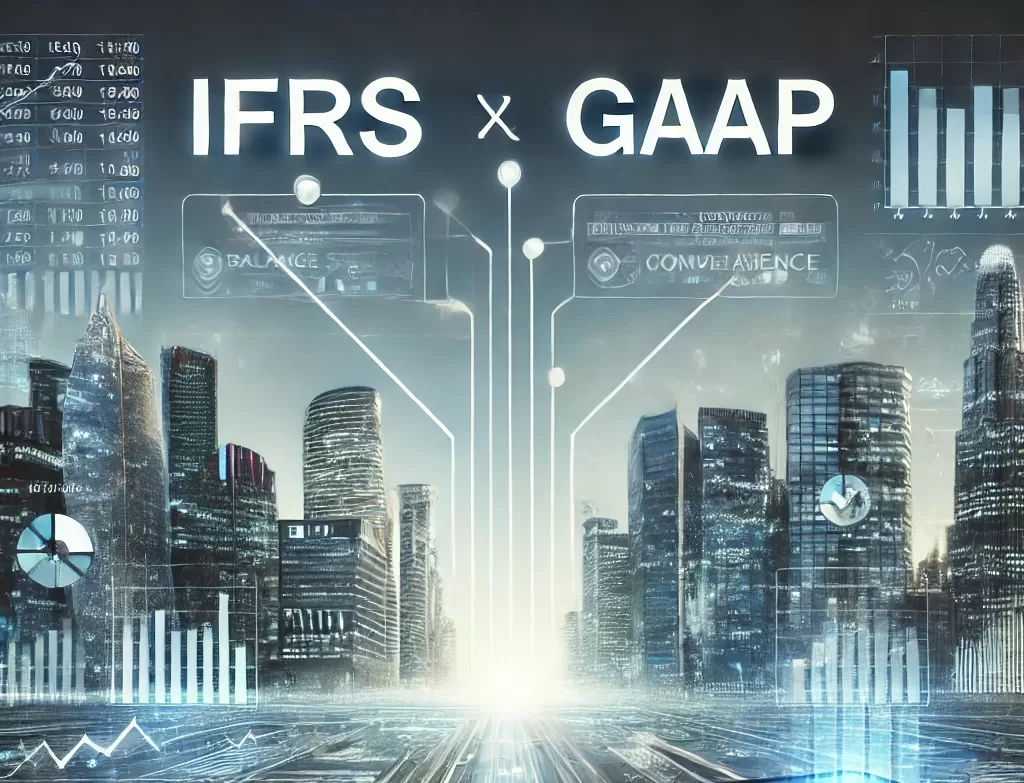
As businesses continue to expand globally, financial reporting standards remain a critical element in ensuring transparency, comparability, and reliability in financial statements. Both the International Financial Reporting Standards (IFRS) and the Generally Accepted Accounting Principles (GAAP) are undergoing significant transformations to keep up with evolving economic conditions, regulatory demands, and technological advancements. This article explores key developments expected in IFRS and GAAP for 2025 and beyond, and what they mean for businesses worldwide.
1. Convergence Efforts Between IFRS and GAAP
The ongoing efforts to harmonize IFRS and GAAP remain a focal point for standard setters. While full convergence is unlikely in the near future, the International Accounting Standards Board (IASB) and the Financial Accounting Standards Board (FASB) continue to collaborate on key projects. Expect to see continued alignment in areas such as revenue recognition, lease accounting, and financial instruments, reducing discrepancies that challenge multinational companies operating under both frameworks.
2. Sustainability and ESG Reporting Integration
Environmental, Social, and Governance (ESG) factors are becoming increasingly important for investors and regulators. In response, the IFRS Foundation has established the International Sustainability Standards Board (ISSB) to develop a global baseline for sustainability disclosures. The U.S. Securities and Exchange Commission (SEC) is also working on climate-related disclosure requirements under GAAP. These changes will require businesses to enhance transparency in reporting non-financial metrics and align financial reporting with sustainability goals.
3. Digital Transformation in Financial Reporting
Advancements in technology are reshaping financial reporting and auditing. The integration of artificial intelligence (AI), blockchain, and data automation is expected to streamline compliance with IFRS and GAAP. Regulatory bodies are likely to introduce updated digital reporting requirements, including greater use of XBRL (eXtensible Business Reporting Language), to enhance accessibility and comparability of financial data.
4. Lease Accounting Revisions and Implementation Challenges
While IFRS 16 and ASC 842 have significantly changed lease accounting in recent years, challenges in implementation remain, particularly for industries with complex leasing structures such as retail, aviation, and logistics. Upcoming amendments and clarifications are expected to address these challenges, providing more detailed guidance on lease modifications, discount rate applications, and leasehold improvements.
5. Fair Value Measurement and Financial Instruments
Financial instruments accounting remains a key area of divergence between IFRS (IFRS 9) and GAAP (ASC 326). Future developments will likely focus on refining fair value measurement practices, credit loss recognition, and hedge accounting. Companies must stay informed on how these changes impact their risk management strategies and financial reporting.
6. Implications for Businesses and Financial Professionals
The evolving IFRS and GAAP landscape means businesses must be proactive in adapting to new standards. Key considerations include:
- Investing in robust financial reporting systems that can accommodate changing requirements.
- Enhancing internal training programs for finance and accounting professionals to stay ahead of regulatory changes.
- Engaging with auditors and consultants to ensure smooth transitions to new standards and avoid compliance risks.
Looking Ahead
With increasing globalization and regulatory complexity, the future of financial reporting will demand more transparency, consistency, and technological adaptation. Businesses that proactively embrace these changes will gain a competitive edge, ensuring compliance while improving financial decision-making.
At Mavins International, we remain at the forefront of these developments, helping businesses navigate the evolving IFRS and GAAP landscape with expert guidance. Stay tuned to our Insights page for more updates on financial reporting and regulatory trends shaping the industry.
For more insights, follow us on LinkedIn and join the conversation!
